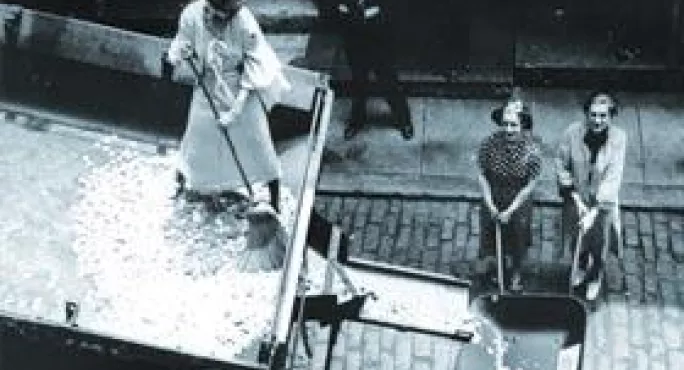Charity begins at school for the elite

Charitable status should be stripped from independent schools to prevent them benefiting from sizeable tax breaks, according to a new parliamentary petition.
Campaigners argue that the current system favours the “elitist and privileged” independent sector at the expense of state schools, which face bigger tax bills.
Scotland’s largest teaching union, the EIS, took a similar stance at its annual conference in June, backing a motion to remove charitable status from independent schools.
But independent schools have hit back, arguing that they serve many children from poorer backgrounds and comply with the “toughest charity test in the world”.
The new petition to the Scottish Parliament was lodged by political campaigner Ashley Husband Powton. She cites 2011 figures showing tax liabilities falling sharply in schools such as Edinburgh’s Fettes College, where former British prime minister Tony Blair was a pupil. Meanwhile, state schools serving poor communities are paying their tax liabilities in full, the petition states. “This is a pattern reproduced across Scotland and is due to the current charitable status of private schools,” Ms Husband Powton writes.
But John Edward, director of the Scottish Council of Independent Schools, said that as a result of legislation in 2005, Scotland had “the toughest test anywhere in the world” for independent schools seeking charitable status. “The one way to guarantee that schools become more private is to remove charitable status,” he added.
Such a move would force a small number of the 45 affected schools to close, Mr Edward said. He added that removing charitable status would push more pupils into the state sector, thus drawing on its resources and leading to unemployment for some teachers.
Under the existing system, Scottish independent schools - unlike those in England - have an obligation to provide generous bursaries totalling about pound;35 million annually. This includes some 400 full bursaries, covering average fees of about pound;10,000 at day schools or nearly pound;30,000 in boarding schools, plus many more partial bursaries.
With income derived from privately paid fees rather than the public purse, it was wrong to suggest that the taxpayer was giving money to independent schools, Mr Edwards said.
At the time of writing, the online petition, which closes on 1 October, had attracted 123 signatures and some contrasting comments. “Just another example of an unfair society that favours the rich,” Lesley Ann Cassidy said. Meanwhile, Dale Bilson called the petition “too one-dimensional, sensationalised and ill-informed”.
“What, pray, do you think these schools do with their money?” he asked. “Do they pay out dividends to shareholders who languish on yachts on the Caribbean? No - they reinvest in providing a quality education, including a commitment to providing this education (often enshrined since their very foundation) to those who would otherwise not be able to afford it.”
An EIS spokesman said that although its annual conference in June had approved a motion calling for an end to independent schools’ charitable status, a policy position had yet to be considered by its executive committee.
The agreed stance “would have to be nuanced” in order to reflect the number of independent schools which catered for vulnerable young people with special needs, the spokesman said, adding that the union was not opposed to independent schools and had a “significant” membership in the sector.
“The issue at question here is the fairness of granting potentially preferential financial treatment to a small number of educational establishments while the majority of schools are under considerable financial strain,” he said.
A spokeswoman for the Office of the Scottish Charity Regulator (OSCR) said that since 2005 it had reviewed all fee-charging schools in Scotland. The majority of schools had met the charity test. Those that did not had been advised on what action to take and so far all had complied.
View the petition and OSCR decisions
Register with Tes and you can read two free articles every month plus you'll have access to our range of award-winning newsletters.
Keep reading with our special offer!
You’ve reached your limit of free articles this month.
- Unlimited access to all Tes magazine content
- Save your favourite articles and gift them to your colleagues
- Exclusive subscriber-only stories
- Over 200,000 archived articles
- Unlimited access to all Tes magazine content
- Save your favourite articles and gift them to your colleagues
- Exclusive subscriber-only stories
- Over 200,000 archived articles



